Mixed Reality Simulation (MRS) in Pre-Service Teacher Education Project
The “Mixed Reality Simulation (MRS) in Pre-Service Teacher Education Project” is a research project in the Department of Childhood Education that explores how MRS can be used to guide and support pre-service teachers to develop competence in using core teaching practices. The technology used for the teaching simulations utilizes a combination of immersive virtual environments and human-directed in-the-moment puppetry, a model known as human-in-the-loop (HITL). During the teaching simulations, simulation specialists are responsible for bringing educational scenarios to life by controlling the movements and voices of digital avatars in real time. The immersive quality of these environments leads to a suspension of disbelief, leaving participants feeling that they are not pretending but that they are actually interacting in a real-life scenario.
Project team members
Prof Sarah Gravett is the project leader, and Dr. Dean van der Merwe is the project manager. Staff members involved are Prof Sarita Ramsaroop, Prof Jacqueline Batchelor, Prof Nadine Petersen, Dr Kathleen Fonseca, and Dr Fikile Simelane. Ms. Pumzile Mello is doing her PhD research within the project. In addition, two master’s students are involved, namely Ms. Pamela Tshabalala and Ms. Cassy Bremmer. Mr. Patrick Makhubalo, Ms Thandeka Ncube, and Ms. Nthabiseng Tsotetsi will join the project as PhD students.
Our research in 2022
We started experimenting with MRS in 2022 at a small scale, involving only 15 final-year student teachers. During this time, participating student teachers taught planned lessons to computer-based, human-controlled avatars acting as learners. The MRS platform used was TeachLivE™, which enabled student teachers to deliver lessons, develop classroom management skills, and practice the use of questioning in a safe and controlled environment. The learner avatars were controlled by simulation specialists from the University of Central Florida (UCF).
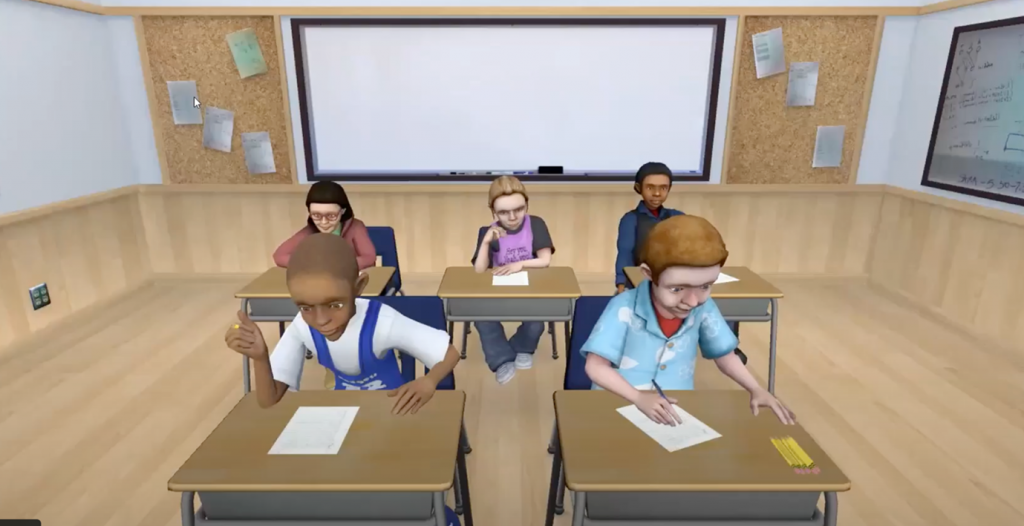
TeachLive Learner Avatars
To read more about how the MRS sessions were facilitated in 2022 and what we learned about the affordances of MRS in teacher education, explore the insights discussed in this article: https://www.mdpi.com/2227-7102/13/10/1062
Our research in 2023
In 2023, the University of Johannesburg allocated funding, enabling the project’s expansion. This expansion involved the utilization of the Mursion™ platform and the training of our own simulation specialists to facilitate the simulations.
In 2023, we broadened the sample size by including MRS in the third-year foundation and intermediate-phase student teachers’ Teaching Methodology and Practicum modules. During the MRS sessions, student teachers taught 10-minute designed lessons to the avatars to practice using questioning effectively in mathematics.
Student teachers with the learner avatars
Training our own simulation specialists
In 2023, our research project took a big step in training our own simulation specialists in collaboration with Mursion™. These sim specialists learned how to make educational scenarios come alive by controlling the movements and voices of digital avatars. They became really good at understanding and acting like the different personalities of selected learner avatars. Additionally, the training covered a detailed exploration of the simulation software, making sure our specialists became skilled at facilitating immersive and realistic scenarios.
Sim specialist Tlhalefo facilitating a MRS session
Sim specialist Karabo facilitating a MRS session
The role of coaches in the MRS sessions
Coaches are integral in the MRS sessions. While the student teachers were teaching the avatars, a teacher educator, acting as a coach, and other student teachers observing the lesson would note strengths and areas for improvement related to the specific skill being practised. A specific rubric was designed for this purpose. Observing the interaction between the student teachers and the avatars, the coach could pause the student teaching at any time to offer guidance.
This was followed by a reflection session, which involved the coach and peers providing comments to each student teacher, prompting self-analysis of strengths and areas for improvement in the targeted skill. After that, a 30-minute online coaching session addressed identified areas for improvement. In the following sessions, students revised their lessons based on the feedback provided by the coach and peers, presenting the same lesson again in a second MRS session following the initial structure.
Coaching session led by Professor Sarita Ramsaroop (right)
What we have learned so far and the way forward
Though the project was launched only recently, there is already evidence that the student teachers benefit from their involvement in the MRS. Student teachers in 2022 and 2023 showed increased competence in relation to using questions as a core teaching practice. Their reflections on their experience show deep thinking about their practice and increased self-efficacy. In 2024, we will continue integrating MRS into our teacher education programmes, exploring its potential benefits through ongoing research.

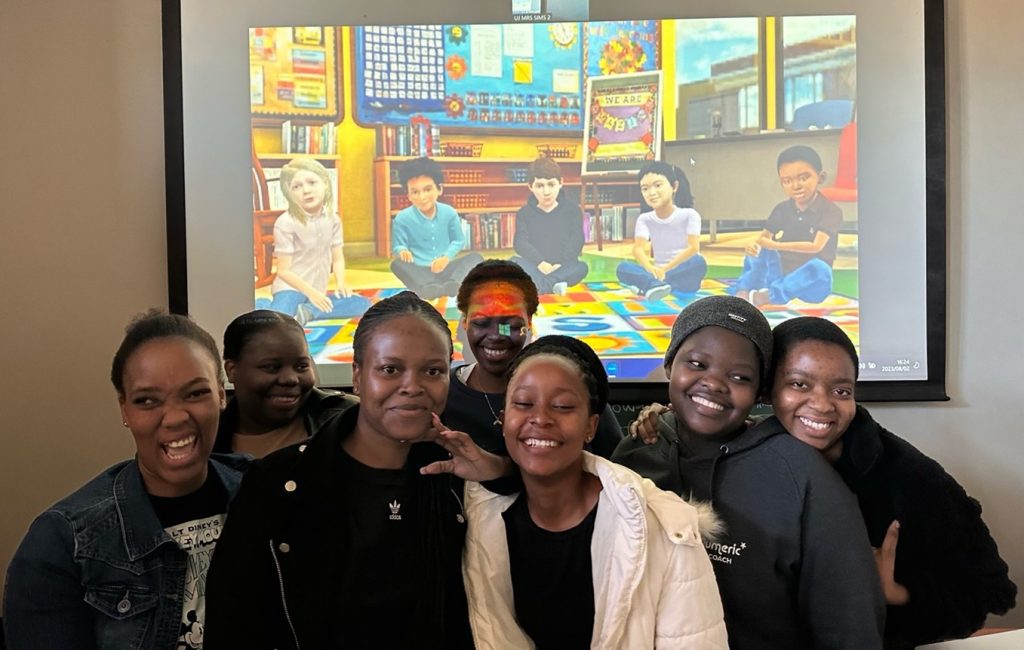 Student teachers with the learner avatars
Student teachers with the learner avatars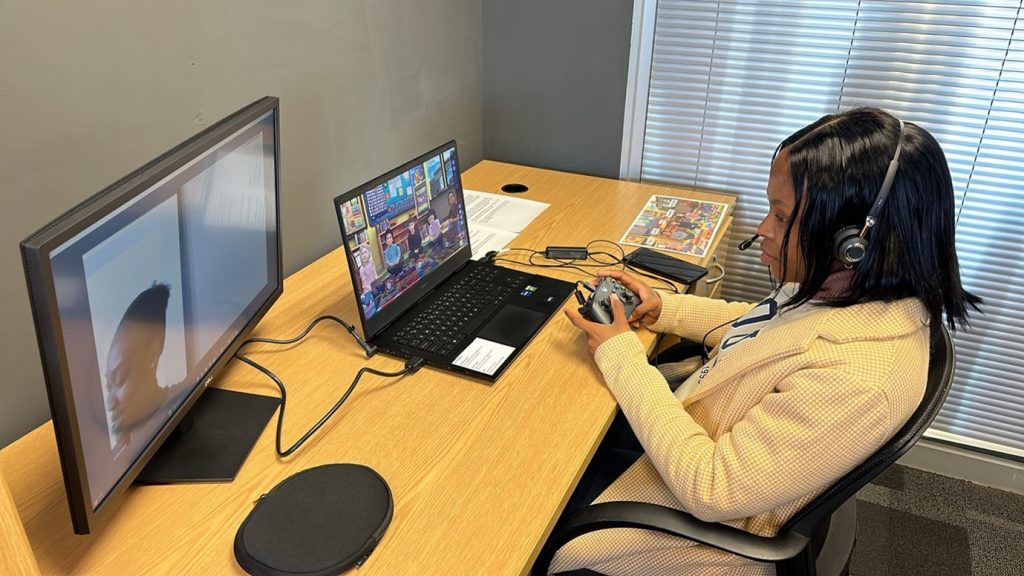 Sim specialist Tlhalefo facilitating a MRS session
Sim specialist Tlhalefo facilitating a MRS session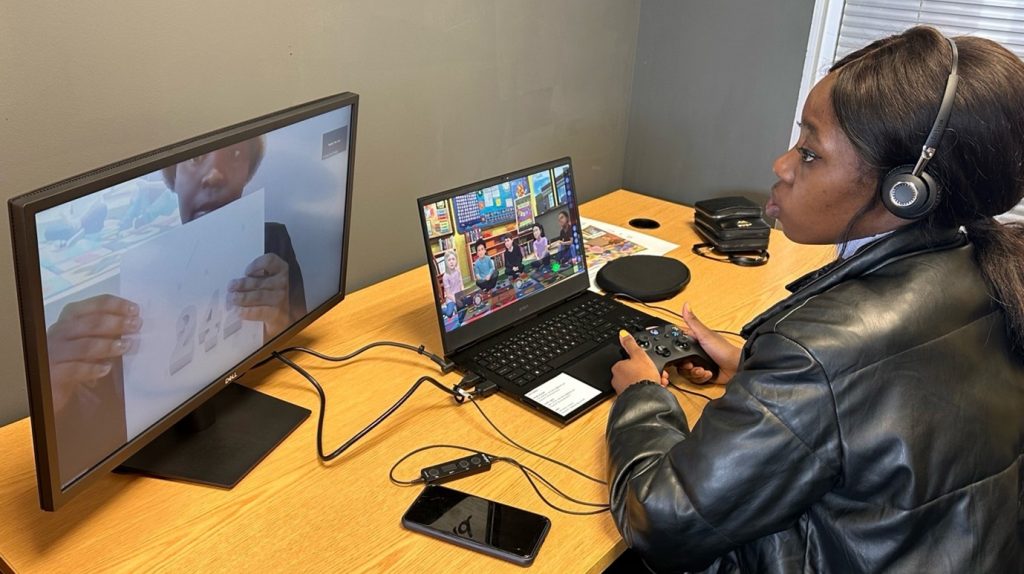 Sim specialist Karabo facilitating a MRS session
Sim specialist Karabo facilitating a MRS session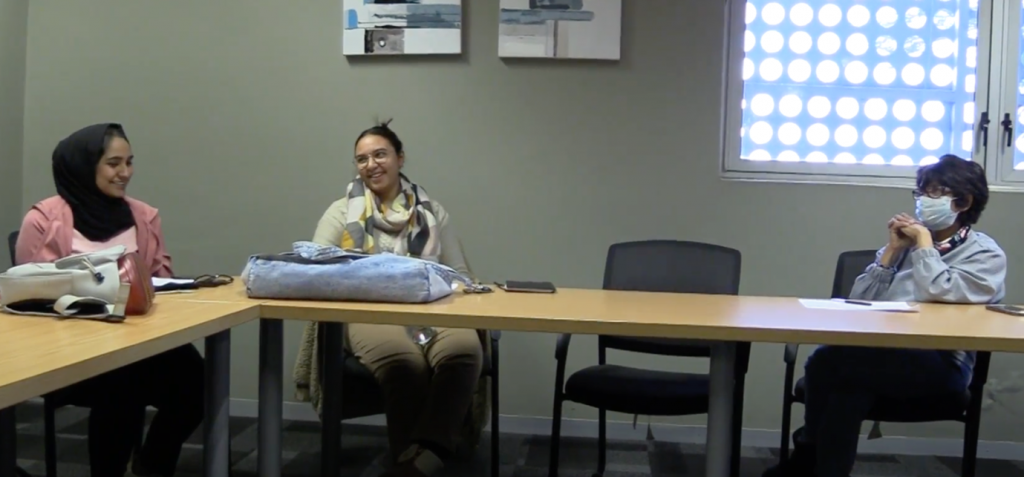 Coaching session led by Professor Sarita Ramsaroop (right)
Coaching session led by Professor Sarita Ramsaroop (right)